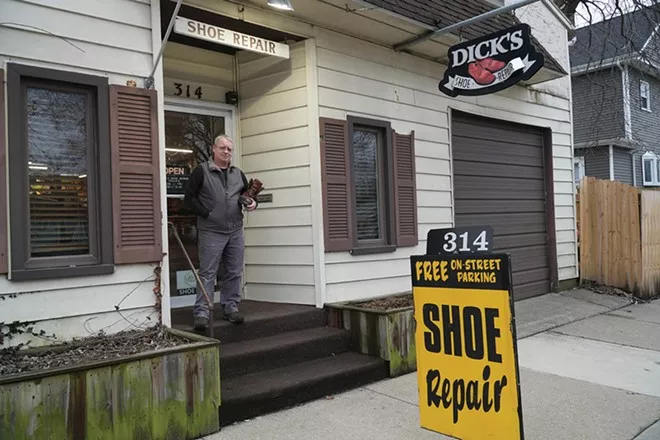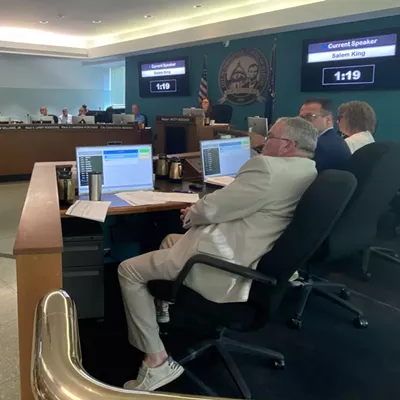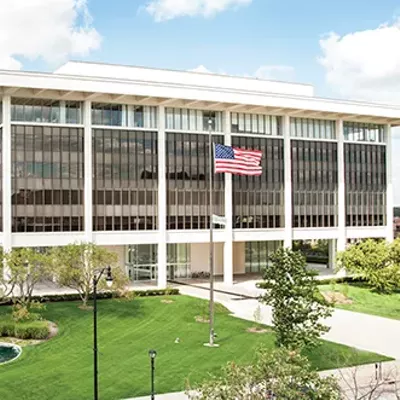Strings are often attached in Mark Yeates' business transactions.
The owner of Dick's Shoe Repair, 314 W. Laurel St., enjoys putting new shoestrings on pairs of Oxfords or stitching new soles onto wingtips.
But one string he doesn't like is the one credit card companies attach to every charge-card transaction that happens in his shop.
"These credit card fees are awful. They take almost 4% of every charge that is made – it makes it difficult for a small business," he said.
In response, Yeates won't allow customers to make charges of less than $5. Other Springfield merchants have taken to offering discounts to customers willing to pay cash.

"At a time when consumers and small business owners are already concerned about the high prices of everyday items, the Visa-Mastercard duopoly is only making it worse," Durbin said in a written statement. "That's why I introduced the Credit Card Competition Act, which would introduce competition and choice to the credit card market and bring down excessive credit card fees. Our economy thrives when competition is robust, and the credit card market should be no exception."
Last September, Durbin, along with U.S. Senators Roger Marshall, R-Kansas, and Peter Welch, D-Vermont, sent a letter to Visa and Mastercard insisting on an immediate reversal of their then-planned increase to credit card swipe fees on merchants and consumers – a move that is estimated to cost American businesses and merchants an additional $502 million annually. In the letter, the senators renewed their calls for competition in the payment processing industry. They criticized Visa and Mastercard for what they called price-gouging tactics.
Building off of debit card competition reforms enacted by Congress in 2010, the bill would direct the Federal Reserve to ensure that the largest credit card-issuing banks offer a choice of at least two networks over which an electronic credit transaction may be processed.
Rob Karr, president of the Illinois Retail Merchants Association, told Illinois Times his association backs the measure.
"Currently, there's one network. It is largely owned and operated by the banks themselves, many of whom are card issuers. This would require them to allow at least one other processor to be operating and to allow retailers a choice. We think more than one (processor) would pop up."
While the credit card fees are nothing new, Karr said the problem is becoming more acute for retailers because of a marked change in customer behavior.
"The pandemic's effect was really to condition people to pay electronically for many, many more items. So, typically they would have paid cash for a cup of coffee. Now a lot of people are paying electronically for even the smallest items. The number of people using electronic payments has spiked, and that has passed on significant cost to the retailer. And for the retailer, there's no recourse for that. They have to pay whatever is demanded by the card companies.
Durbin's legislation has received endorsements from a wide range of small business, consumer and university groups, as well as key unions, including International Brotherhood of Teamsters and the Service Employees International Union.
According to the Federal Reserve, Visa and Mastercard account for nearly 576 million cards, or about 83% of general-purpose credit cards. The two companies' market power and network structure have enabled them to impose fees on U.S. merchants that are among the world's highest, charging a total of $93 billion in U.S. merchant credit card fees in 2022.
These fees include interchange or swipe fees which Visa and Mastercard require merchants to pay to issuing banks, as well as network fees that Visa and Mastercard require merchants to pay directly to them.
Consumers ultimately pay for these fees in the price of the goods and services they buy, Durbin said. Interchange fees are the second-largest cost for many small businesses – only behind labor costs.













